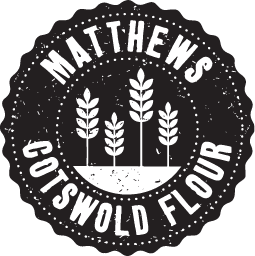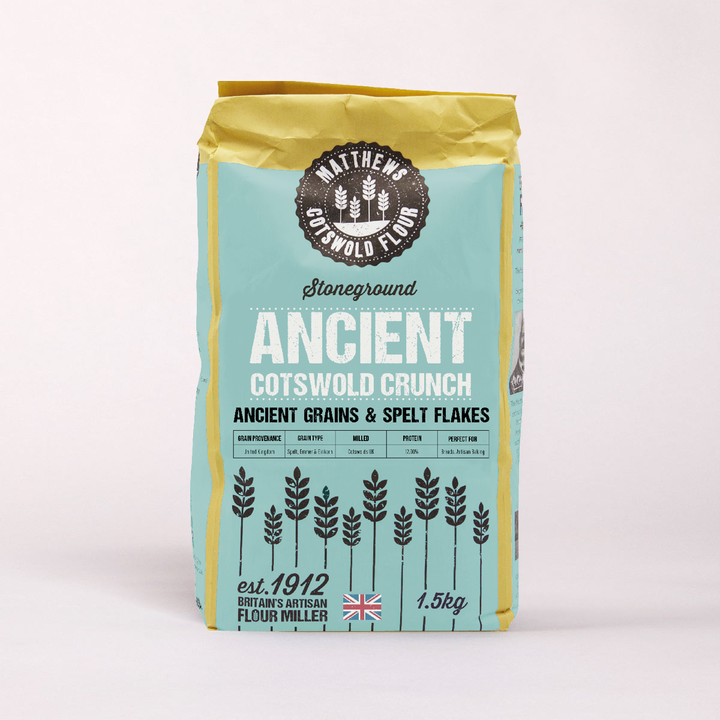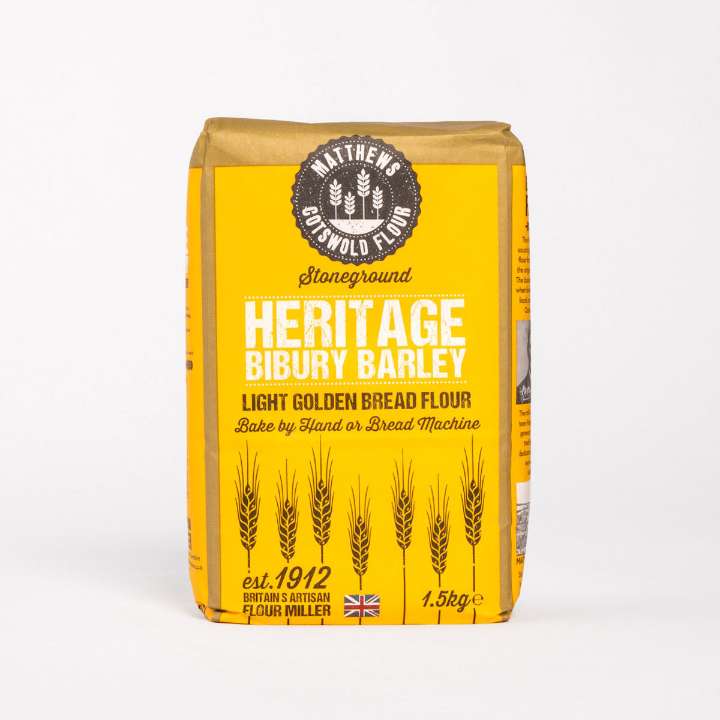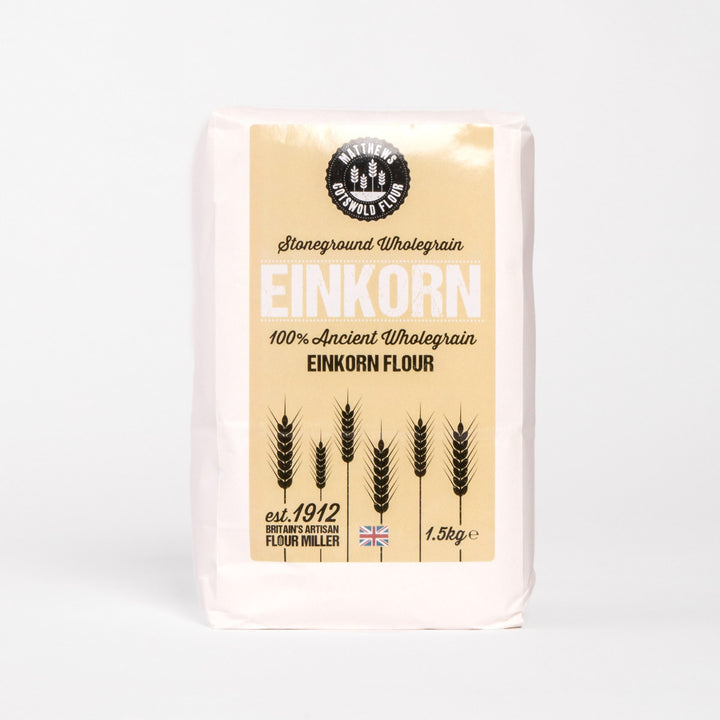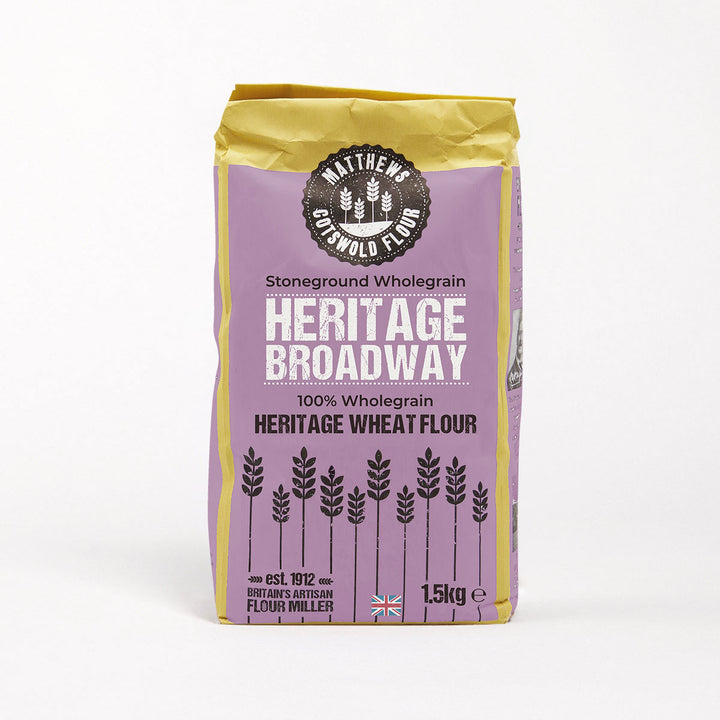Meet the miller – Michelle from Matthews Cotswold Flour
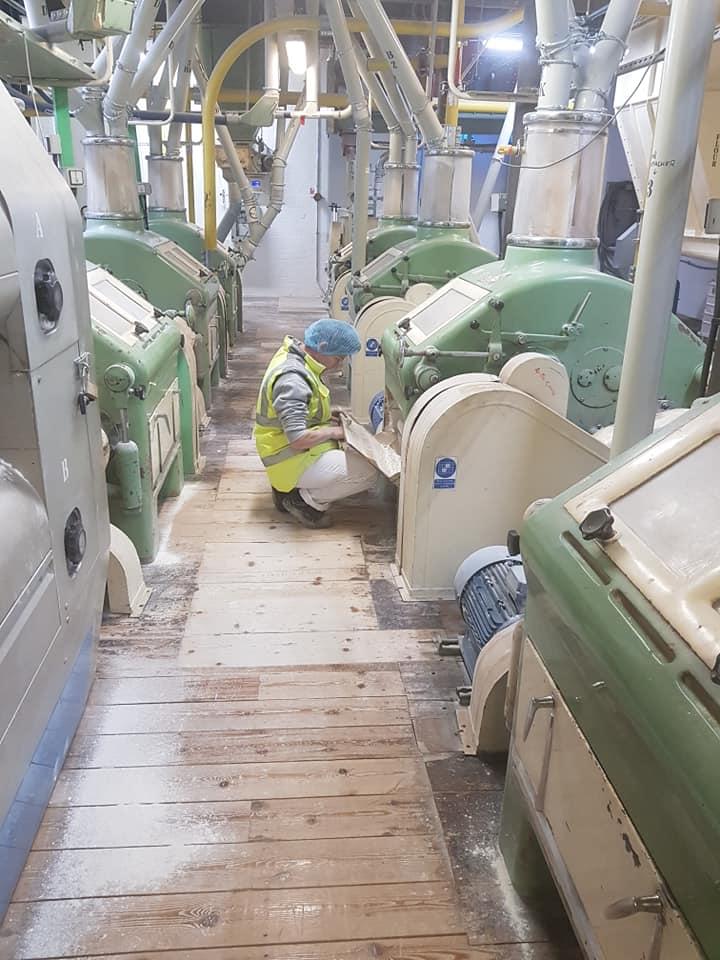
1. Did you always want to be a miller? How did you get into the role?
To be honest, it was not a career I had ever thought about or even realised was a career! I have had a very varied working life and I must admit I love a challenge and was excited when I heard about the position.
I started my working life as a chef, I then worked in a trout farm and managed it for about five years. I taught fly fishing too which was interesting, but after a while your body is not very happy about standing in water all the time.
I then went to work helping a head gardener on a large country estate. Then a firm of builders started working on the estate which specialised in historic and listed buildings. I cheekily asked if they might have a role for me and I ended up working for the firm for seven years. Whilst there I went to college and qualified as a plasterer.
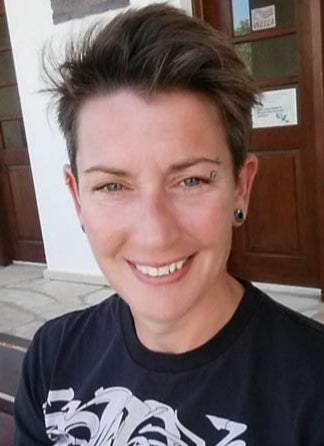
I then met my now wife and moved from Oxfordshire to Staffordshire and landed a role within an inhouse trading standards team of a well-known retail store. However, my family remained in Oxfordshire, and we decided to move closer to home after my mum sadly passed away.
My nephew is also a trainee miller at Matthews Cotswold Flour, and he put me in touch with Mark the Production Manager. I had an interview and as they say, ‘the rest is history!’ Now my wife also works at the mill in the Quality Assurance department.
I was excited to start my new job as I like hands on manual work, and I love to test the boundaries. I am really loving my new job, but it is physically demanding, and you need a lot of technical knowledge, so every day I am learning something new.
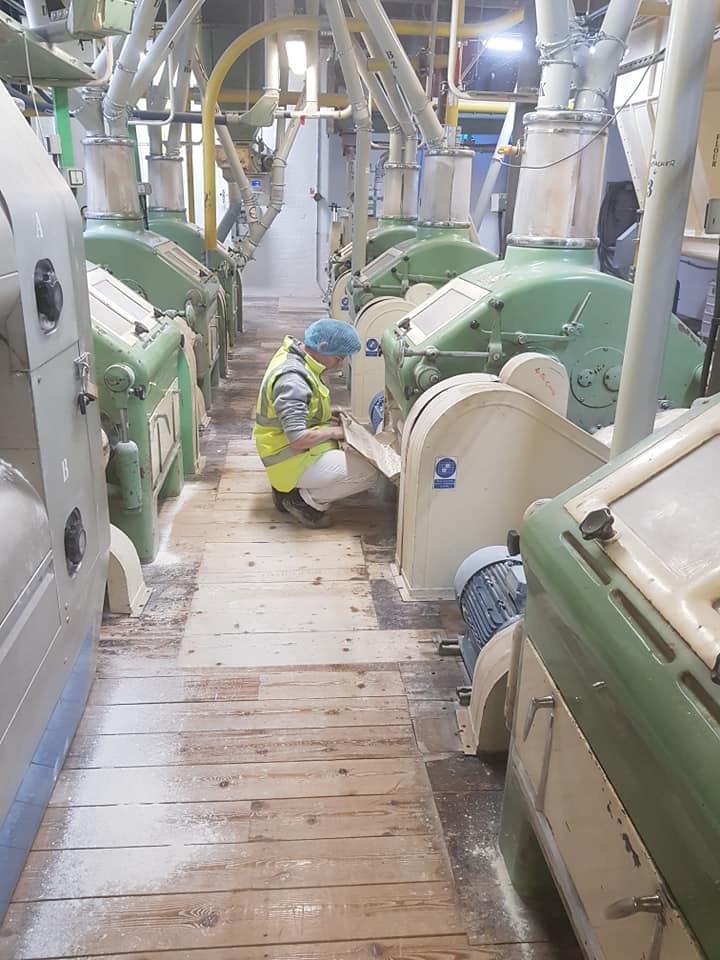
2. Why did you decide to take a milling apprenticeship? And how long will it take to complete?
I was excited from the moment I heard about the position. I love learning and I love the fact it is an ancient trade. Milling is one of the oldest human occupations. It is also one that realistically women have always done but never been acknowledged for.
Women around the world use hand millstones every day to make flour for bread in many countries. In the war, women took over the mills while the men were away, but it is not a career many female workers have taken up since.
The milling apprenticeship takes about seven years to complete and is module based so you can do it in less time. It depends on the person and how much work you put into it; I start my first module in September.
3. What kind of subjects do you cover on your apprenticeship? Do you have to attend classes or complete assignments? Is it running in conjunction with another organisation?
As part on my apprenticeship I will cover modules on:
- Safety, Health and Hygiene
- Wheat and the Screen Room
- Mill Processes and Performance
- Product Handling, Storage and Distribution
- Flour
- Power and Automation
- Flour Milling Management
The apprenticeship is a modular correspondence course run by the National Association of British and Irish Millers. Every student receives tutor support and there is an exam after each module. They prefer you to do up to three modules in the first year and I am aiming to do all three as it will help me immensely.
4. What is your favourite part of your job?
It is hard to say because it is so varied. There is a sense of satisfaction when you have got the whole of the mill running by yourself and you can see flour being produced because you set it correctly. You test the flour and it is within the specification. It is like “YES” I made that
5. Have you worked at any other mills?
Before working at Matthews Cotswold Flour, I had not really thought about pursuing milling as a career. With flour, you just go to the shop and buy it. Yet so much goes into that 1.5kg bag from the farmer to the shop. It is a staple we take for granted.
6. What would you say to other girls to encourage them to take up a milling apprenticeship?
DO IT! It is a physically demanding because there is a lot of walking. I do about 20,000 steps a day and as our mill is over 4 flours, there are a lot of steps to climb. Male or female you do need to be reasonably fit. Women are not allowed to physically lift as much weight as men, but that problem is easily engineered out. You must also be willing to learn. Other than that, there really are no boundaries.
7. Do you think women are put off becoming millers?
I was welcomed at Matthews and I do not feel they see me as a woman but as a Trainee Miller. Women have been millers for centuries, especially as mills were often family run and women learnt the trade from their fathers but were historically were not recognised. I do think that there are wider issues at work for women – history shows that women have not been encouraged to enter lots of careers especially milling and engineering. During WWII, women embraced these occupations and mastered them. After the war, women had to leave the occupations, so men could take up their old employment and they went back to being homemakers.
I also think that children, male or female, are not aware of traditional trades like milling, because modern occupations like computer programming get the limelight. However, in milling, lots of modern skills are required – we use technology alongside our traditional methods throughout the process from loading, monitoring quality and packaging. I think more young people should be encouraged to enter the trade because milling is so important for providing food for the country – it is the basis of bread!

8. What is special about working at Matthews Cotswold Flour mill?
It is a great team. There is a family atmosphere within a very professional organisation. We make a great product; our customers will tell you that and tell us time and time again. It is also a great setting; you go up on the roof and view is literally stunning. I have already taken my forklift test and had weighbridge training. Matthews do give you everything you need for the job, which is refreshing.
9. What is your favourite Cotswold Flour? And do you like to bake, if so what?
My favourite flour must be the good old plain. Being a trained chef, I like a general flour. I have to say the Cotswold Organic Plain makes the best pancakes ever. They are super light but really balanced.
10. What is it been like working at the mill during Covid-19? What new practices have you adopted?
It has been difficult in many ways. The strangest one is demand; it has gone through the roof. Good for business but it does make you realise how many people have had to stay at home and isolate because of family members or vulnerability. The mill has been running 24/7 and everyone is tired because we want to do the best, we can for everyone. I think everyone is tired, aren’t they? Staying at home is tiring in a different way.
At work if I am the shift miller there is only me in the mill, so I do not have to worry about distancing. The millers are going to work and then home. We are all looking out for one another and making sure we keep safe. At the end of the day if there are no millers that means no flour.
We clean keyboards and all common areas before the next miller comes onto shift. If I go anywhere else, through each transition I wash or hand gel my hands and they are so dry, so those poor NHS workers must be in agony.
However, good food hygiene practice, involves a lot of hand washing anyway, so it is easy to remember. No one else is allowed in the mill who is not authorised to be there and we keep our distance if there is someone.
My wife works in the offices and they always have the two metre rule, hand washing, etc. so I feel safe and that I am keeping my colleagues safe. There is no lack of PPE, we have face masks, face shields, gloves, hand gel etc. so, touch wood, we have no one ill or who has had to isolate because of work.
11. Do you live locally to the mill?
I live on a National Trust Estate, Lodge Park about 20 minutes from the mill in a little stone hobbit cottage. Me, the wife and two dogs. We have a 120-metre-long garden to look after, so we are always busy and live by idyllic woods with nature walks which the dogs love. All in all, life is really good
← Older Post Newer Post →
